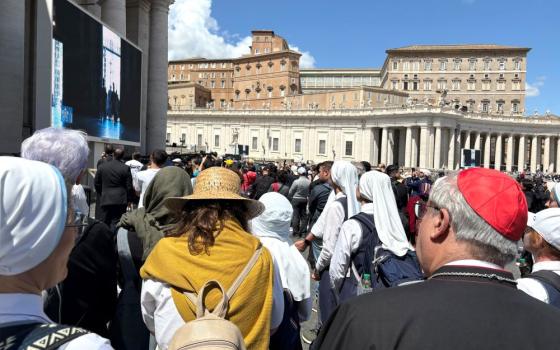The final book in this series on religion and the founding comes from David Holmes, Professor of Religious Studies at the College of William and Mary. The Faiths of the Founding Fathers, unlike the four previous volumes, is scholarly but more accessible and could easily be read by a high school age student. As we shall see, it does not delve as deeply as one would want into the thorny issues of religion and society, but it does provide both the appropriate frames, and concise pictures within those frames, of individual founders and what they believed.
Holmes notes the dominant influence of Calvinism on colonial religion. “Church historians have estimated that over 80 percent of American Christians in the colonial period – from Anglicans on the right-center of the Christian spectrum to Quakers on the left – were significantly influenced by John Calvin’s teachings,” he writes. “Only the Roman Catholics, some of the Lutherans, and some of the ‘sects’ remained distinctly free from Calvinist influence.” For all the squabbles in the mother country between Presbyterians and Puritans, for whom Calvinism was their mantra, and Anglicans whose views were more latitudinarian, there was a significant number of Anglican clergy on both sides of the Atlantic with deep Calvinist sympathies. He notes that two of the most Calvinistic hymns that have come down to us, “Rock of Ages” and “Amazing Grace” were both penned by Anglican ministers.
Around the middle of the eighteenth century, Deism began to make its presence felt in the American intellectual firmament, and that presence extended to theology. Few Americans were full blown Deists, although the highly popular essayist Thomas Paine and the leader of the Green Mountain boys Ethan Allen, were. Paine wrote that Deism is “free from all those invented and torturing articles that shock our reason…with which the Christian religion abounds.” For these arch-Deists, especially on the Continent, Christianity was “a barrier to moral improvement and to social justice.” In France, we all know the ugly consequences to which this belief led in their Revolution. But, before the guillotine convinced them otherwise, many Americans were imbued with the sense of rationalism and progress that was the lifeblood of Deism.
In addition to those who were outright Deists, the movement affected many, if not most, of the founding fathers who subscribed to a kind of Christian Deism or Deistic Christianity. “Among educated eighteenth-century Americans, however, this idea of reason as a liberator from the shackles of repressive religion and tyrannical government won widespread acclaim,” Holmes writes, showing the movement’s compatibility with the politico-religious themes I have been highlighting in the scholarly work of others this week. Holmes does not go into detail about how these Deistic influences did, or did not, cohere with traditional Christian orthodoxy as deeply as one would wish. How could someone like John Adams consider belief in the divinity of Christ an “awful blasphemy” yet still call himself a Christian? Nor does Holmes pose, still less answer, a question that seems obvious enough: To what degree was this Deistic Christianity a response to Calvinism?
I know the answer to the first question – and so do you: Many people seem to think of Jesus Christ as an outstanding ethical teacher but not as the savior of the world. This makes little sense upon examination. Thomas Jefferson, whose Deism was more finely sharpened than Adams’, nonetheless considered Jesus’ ethical teaching “sublime.” That is not how they were viewed at the time, of course. Jesus was crucified for a reason. Nor do any of the founders, or their contemporary followers today, raise any questions about other first century verdicts in any other province of the Roman Empire. Why this one unless you believe this Jesus was raised from the dead, that He was divine? The second question – whether the rise of Deistic Christianity was a response to Calvinist orthodoxy – is a subject I commend to historians of American religion.
Holmes then surveys the attitudes of six founding fathers – Franklin, Jefferson, Washington, Adams, Madison and Monroe – and concludes that all of them would have fallen into the category of Christian Deist or Unitarians, except perhaps Monroe who seemed to be motivated by no religious curiosity at all. Some, like Madison, shifted over time, attending that intellectual redoubt of orthodoxy, Princeton, as a young man, but drifting towards Deism over the years such that when his cousin became a bishop in the Anglican Church, Madison never sought to be confirmed. Washington was a dutiful member of his parish, serving on the vestry, commending divine worship to his soldiers during the war and to his fellow citizens while president, but he never took communion, declined to be confirmed, invoked almost exclusively Deistic terminology when describing God – “the great architect of the universe” and “nature’s God” for example – yet his Deism was not so complete that he thought it foolish to implore the blessings of Providence. For Christian Deists, unlike the hardcore Deists, God was not the watchmaker God who created the world and then left it alone. Still, their god was not the God of Abraham, Isaac and Jacob either.
One of the best parts of Holmes’ book is the chapter that examines the religious beliefs of the wives and daughters of the founding fathers. Almost universally, they were more orthodox than their husbands and fathers. Abigail Adams would still be considered a Unitarian, to be sure, although she tended to mix Deistic principles with parables from the New Testament with some regularity in her correspondence. Martha Washington was a regular communicant in the Anglican Church. Dolley Madison was raised a Quaker but adopted her husband’s then-declining Anglican faith at the time of their marriage and there is some debate as to whether she ended her life as an orthodox Anglican or a Unitarian, whereas there is no doubt about her husband’s heterodoxy. Holmes also looks at the lives and attitudes of three undoubtedly orthodox Christian founders: Samuel Adams, Elias Boudinot, and John Jay.
Holmes’ book refutes some of the foolishness that is claimed about the founders. They were note devout, orthodox Christians intending to found a Christian nation. Nor were they strict Enlightenment rationalists, determined to extirpate Christianity as an impediment to human progress. But, they did understand religion as a private matter and one primarily concerned with ethics. The secularization of society goes back to the Reformation when the state began taking over the work of the Church. By the time Queen Elizabeth I went to her grave, religion was often understood in utilitarian terms, at least by the political leaders of the time. And, sadly, so it is today. Our nation was not founded as a Christian nation, and it is far from clear that it was founded by Christians. But it was founded by people who considered themselves Christians, who did not recognize that by reducing religion to ethics, by rejecting revelation that did not cohere with their rational premises, by placing an undue confidence in human reason and, thereby, denying humankind of our first and foremost birthright, original sin, they were in fact no longer Christians. They were Americanists. And, their progeny is still far too influential in the political and religious life of the nation.



